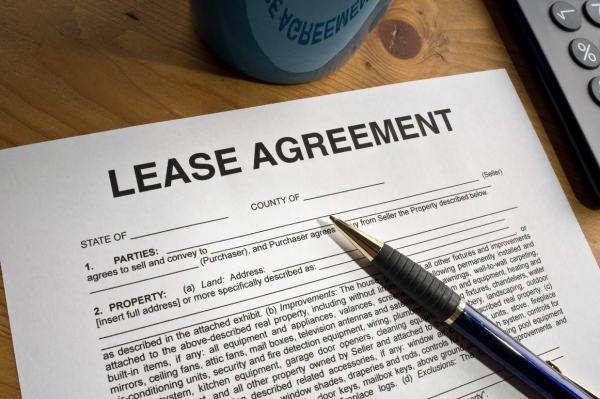Are you a landlord or a tenant? Either way, understanding the common factors and causes of tenant eviction is crucial for a smooth and stress-free rental experience in property management in New Haven, CT.
For landlords, comprehending these factors empowers effective property management, fosters positive landlord-tenant relationships, and minimizes the disruptions caused by eviction proceedings. For tenants, awareness of these factors helps them avoid potential pitfalls, maintain a harmonious living environment, and safeguard their rights as a renter. Whether you’re a landlord safeguarding your investment or a tenant seeking a trouble-free rental experience, let’s start this journey together and learn how to deal with renting more confidently and comfortably.
Failure to Pay Rent: A Common Trigger for Eviction
One of the most frequent reasons that tenants find themselves facing eviction is the failure to pay rent promptly and consistently. This critical aspect of the landlord-tenant relationship can significantly impact the overall rental experience.
The Significance of Timely Rent Payment
Rent payment is the lifeblood of any landlord-tenant agreement. It’s not just a financial transaction; it represents the tenant’s commitment to fulfill their part of the lease contract. When rent isn’t paid as agreed upon, it disrupts this delicate balance, potentially leading to more significant issues down the line.
Behind Late or Unpaid Rent
Late or unpaid rent can stem from a variety of reasons, and it’s crucial to consider these factors before jumping to eviction as the only solution. Tenants may face unexpected financial setbacks, job loss, or medical emergencies that hinder their ability to meet their rental obligations. In some cases, tenants might withhold rent due to dissatisfaction with property conditions or unresolved maintenance issues. Understanding the root causes is essential to determining the best course of action.
Navigating Rent-Related Challenges
For landlords, addressing rent-related challenges involves open communication with tenants. Initiating a dialogue to understand the reasons behind late or unpaid rent can often lead to mutually beneficial solutions. Landlords can work with tenants to establish payment plans, offer extensions, or explore financial resources that can help tenants catch up on their rent.
Lease Violations:
Lease violations are another significant contributor to tenant eviction cases. When tenants breach the terms and conditions outlined in their lease agreement, it not only disrupts the landlord-tenant relationship but can also set the stage for eviction proceedings.
The various aspects of lease violations and their implications:
Common Lease Violations
Lease agreements are legally binding contracts that outline the rights and responsibilities of both tenants and landlords. Violating these terms can take many forms, such as unauthorized subletting, housing more occupants than agreed upon, or keeping pets in a pet-free property. Other lease violations may involve failing to maintain the property, conducting illegal activities on the premises, or disturbing neighbors with excessive noise.
Why Lease Violations Lead to Eviction
Lease violations are taken seriously because they undermine the integrity of the lease agreement. When tenants breach the terms, it can disrupt the landlord’s ability to manage the property effectively and impact the quality of life for other tenants in the same building or complex. As such, landlords often resort to eviction as a means of enforcing the lease and maintaining a harmonious living environment for all residents.
The Importance of Lease Compliance

To avoid falling into the trap of eviction due to lease violations, both tenants and landlords must prioritize lease compliance. Tenants should thoroughly understand the terms of their lease before signing and strive to adhere to them throughout their tenancy. Landlords, on the other hand, should ensure that the lease agreement
Property Damage:
Your property is not just a place; it’s an investment, and you rightfully expect it to be well-maintained. However, when tenants neglect property maintenance or cause significant damage, it becomes a recipe for eviction. Landlords in Connecticut are keen on preserving their property’s value, and they won’t hesitate to take action, including following the eviction process in CT.
Impact of Property Damage
- Physical Damage: This includes any harm to the structural integrity of the property, such as broken windows, damaged doors, or holes in walls.
- Wear and Tear: Excessive wear and tear beyond what’s considered normal usage can also be considered property damage.
- Neglect: Failing to maintain the property in good condition, leading to issues like plumbing leaks or mold growth.
- Vandalism: Intentional acts of damage or vandalism by tenants or their guests.
How Property Damage Can Lead to Eviction
- Financial Impact: Repairing property damage can be costly for landlords, potentially resulting in the use of security deposits or legal action to recover repair expenses.
- Tenant Displacement: In cases of extensive damage, tenants may be required to vacate the property temporarily for repairs, causing inconvenience and disruption.
- Tenant Liability: Tenants responsible for property damage may face legal consequences and damage to their rental history, affecting future housing opportunities.
Tenant Responsibilities for Property Maintenance
Both landlords and tenants share responsibilities for property upkeep:
- Landlords: Ensuring that the property is well-maintained and addressing maintenance requests promptly can prevent issues from escalating into significant damage.
- Tenants: Tenants should promptly report any maintenance concerns to landlords and avoid actions that may lead to damage. Regular cleaning and basic upkeep can go a long way in preserving the property.
Nuisance and Disruptive Behavior:
Peaceful coexistence is key in rental properties. Disruptive behavior, whether it’s loud music, constant disturbances, or conflicts with neighbors, is a surefire way to land on the eviction radar. Maintaining good relations with neighbors and adhering to community rules is crucial.
Legal Reasons for Tenant Eviction:
Even without a formal lease agreement, landlords and tenants in Connecticut are bound by the law. Non-renewal of a lease, engaging in illegal activities within the property, breaching the tenant’s right to quiet enjoyment, or facing eviction due to foreclosure – these are all legal grounds for eviction.
Eviction Process in CT:
The eviction process in Connecticut is a meticulous one. From the initial Notice to Quit to court proceedings and the eventual writ of possession, it’s a journey that takes time and effort. Understanding this process is vital for both landlords and tenants to navigate the system effectively.
Conclusion:
Tenant eviction is a complex process, whether you’re a landlord or tenant in New Haven, CT. To avoid common pitfalls, like non-payment of rent or lease violations, and ensure a harmonious rental experience, it’s essential to respect the lease, maintain open communication, and follow the law. With Idoni Management, your trusted partner in property management, you can navigate these challenges smoothly.
For inquiries and assistance, Contact Us today.





